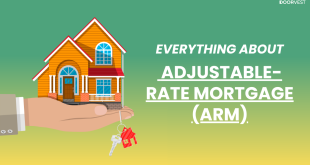Introduction
Mortgages serve as a cornerstone of real estate financing, offering individuals the opportunity to own property while spreading the cost over an extended period. In Europe, the mortgage landscape is diverse and dynamic, reflecting a rich tapestry of historical evolution and modern innovation.

Evolution of Mortgages in Europe
3.1 Historical Background
The concept of mortgages dates back centuries in Europe, with early forms of property financing emerging in ancient civilizations and evolving over time.
3.2 Modern Trends
In contemporary Europe, mortgages have become more accessible and diverse, catering to a wide range of borrowers and property types.
Types of Mortgages in Europe
4.1 Fixed-Rate Mortgages
Offering stable interest rates over the loan term, fixed-rate mortgages provide predictability and security for borrowers.
4.2 Variable-Rate Mortgages
Variable-rate mortgages feature interest rates that fluctuate with market conditions, offering potential savings but also carrying increased risk.
4.3 Interest-Only Mortgages
Interest-only mortgages allow borrowers to pay only the interest portion of the loan for a specified period, providing flexibility but requiring careful financial planning.
4.4 Hybrid Mortgages
Hybrid mortgages combine elements of both fixed and variable-rate mortgages, offering a blend of stability and flexibility.
Mortgage Market Overview
5.1 Key Players
The European mortgage market comprises banks, credit unions, and specialized lenders, each contributing to the diversity of mortgage products available.
5.2 Market Trends
Trends in the mortgage market are influenced by factors such as economic conditions, regulatory changes, and consumer preferences.
Mortgage Regulations in Europe
6.1 Regulatory Bodies
Regulatory bodies oversee mortgage lending practices, ensuring compliance with legal and ethical standards.
6.2 Legal Framework
A robust legal framework governs mortgage contracts, outlining rights and obligations for both borrowers and lenders.
Mortgage Application Process
7.1 Eligibility Criteria
Borrowers must meet specific eligibility criteria related to income, credit history, and property value to qualify for a mortgage.
7.2 Documentation Required
Documentation such as proof of income, identification, and property details is necessary for the mortgage application process.
7.3 Approval Process
The approval process involves a thorough assessment of the borrower’s financial profile, property appraisal, and adherence to regulatory requirements.
Factors Influencing Mortgage Rates
8.1 Economic Conditions
Economic indicators such as inflation, employment rates, and GDP growth impact mortgage rates.
8.2 Central Bank Policies
Central bank policies, including interest rate decisions and monetary stimulus measures, influence the cost of borrowing.
8.3 Market Competition
Competition among lenders can drive mortgage rates lower as institutions vie for market share and customer loyalty.
Benefits of Mortgages
9.1 Homeownership Opportunities
Mortgages enable individuals to achieve the dream of homeownership, providing a path to long-term stability and wealth accumulation.
9.2 Financial Flexibility
Flexible repayment options and loan terms offer borrowers the ability to tailor their mortgage to suit their financial circumstances.
9.3 Investment Potential
Property ownership through mortgages can serve as a lucrative investment, generating rental income and long-term capital appreciation.
Risks Associated with Mortgages
10.1 Interest Rate Fluctuations
Fluctuations in interest rates can impact mortgage payments, potentially increasing financial strain for borrowers.
10.2 Economic Instability
Economic downturns or market volatility can affect property values and borrower income, increasing the risk of default.
10.3 Foreclosure Risks
Failure to meet mortgage obligations can lead to foreclosure, resulting in the loss of the property and damage to the borrower’s credit.
Mortgage Comparison Tips
11.1 Researching Options
Comparing mortgage products from multiple lenders allows borrowers to find the best terms and rates for their needs.
11.2 Seeking Professional Advice
Consulting with mortgage brokers or financial advisors can provide valuable insights and guidance throughout the mortgage process.
11.3 Understanding Terms and Conditions
Thoroughly reviewing mortgage terms and conditions ensures borrowers are aware of their rights, obligations, and potential risks.
12. Future Outlook of Mortgages in Europe
As technology and regulatory frameworks continue to evolve, the European mortgage market is poised for further innovation and growth, providing enhanced access and affordability for borrowers.
13. Conclusion
Mortgages play a pivotal role in shaping the real estate landscape of Europe, offering individuals the opportunity to achieve homeownership and financial security. Understanding the diverse array of mortgage products, market trends, and regulatory considerations is essential for informed decision-making.

Unique FAQs After The Conclusion:
1. Are mortgage rates in Europe generally higher or lower compared to other regions?
Mortgage rates in Europe can vary depending on economic conditions, central bank policies, and market competition. While rates may differ from region to region within Europe, they are influenced by global economic trends as well. Generally, European mortgage rates have been relatively low in recent years compared to some other regions, but this can fluctuate over time.
2. How long does the mortgage application process typically take in Europe?
The duration of the mortgage application process in Europe can vary depending on factors such as the lender’s policies, the complexity of the application, and the efficiency of documentation submission. On average, the process may take several weeks to a few months from initial application to final approval and disbursement of funds.
3. What are the main factors that influence mortgage eligibility in Europe?
In Europe, mortgage eligibility is typically determined by factors such as the borrower’s income, credit history, employment status, debt-to-income ratio, and the value of the property being financed. Lenders assess these criteria to determine the borrower’s ability to repay the loan and the level of risk involved.


